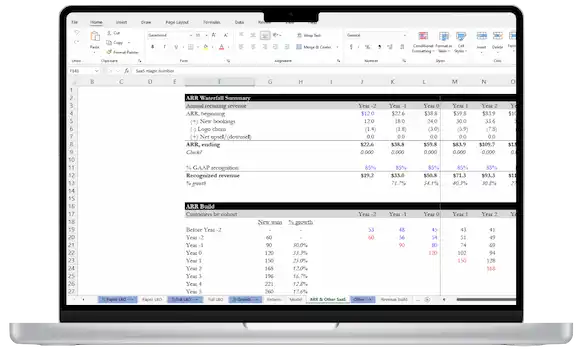The most common question that many ask about investment banking is: what are the hours?
Everyone’s heard horror stories about long hours. But what’s the reality?
Well, I’ve done investment banking at a Bulge Bracket bank, and I’m here to give you the lowdown.
In this article, I’ll discuss investment banking hours, typical schedule, and how to deal with the unpredictability.
Typical Investment Banking Hours
In investment banking, it’s true: long hours are the norm.
As an investment banking analyst or associate, you should expect to work ~60-80 hours per week. However, some weeks can be far in excess of this, especially if there’s a “live deal” in the works.
Many bankers brag about working 100-120 hours per week. While this certainly occurs often (e.g. on a live deal), I wouldn’t say it’s the norm. It’s not sustainable for anyone, even the most committed analyst, to work that much over a long period of time.
Hours do get better as you get more senior. With each level, you’ll probably work ~5 hours per week less on average.
However, remember, it’s a service-oriented job and all the firms compete on how rapidly they can serve a client’s need. It will always be unpredictable and require long hours, especially when there’s a live deal.
Why are hours so long in investment banking?
There are a few main reasons why investment banking is associated with long hours, and why the investment banking career path can be challenging.
- Always be pitching
Even if there aren’t any live deals, in investment banking you can always be pitching clients for future deals. Even if there’s no deals on the horizon, many senior bankers prefer to stay “top of mind” for clients, so there can be research and analysis tasks between pitches.
- Jump (quickly) when clients ask
Let’s face it.
Investment banking is a competitive industry, loaded with smart people (at your bank and at your competitors). One way you can standout from competitors is by hustling and by being the most responsive bank when the client needs something. This leads to work, at all hours of the day/week. Sometimes clients don’t even need the work done quickly, but it never occurred to them that they might create emergency work.
- Bottlenecks (waiting)
Often, in investment banking there’s lots of time spent WAITING. You’ll be waiting for more senior people to give guidance, to give an update, or to give you work. Because they have a busy schedule themselves, they might not sync up with you until later in the day, which means that you’re bottlenecked. Therefore, when you’re “working” long hours, it means that you’re in the office, but not actually jamming on work.
- Investment banking culture
By far, the biggest reason why you’ll work long hours in investment banking is the culture. Everything I’ve mentioned so far adds up to culture. In investment banking, everyone signs up for working hard and putting work first ahead of other commitments. That means there’s an expectation that all team members will be willing to work the hours necessary to deliver.

- 24 lessons
- 6+ video hours
- Expert instructor
ONLINE COURSE
Assess Business Models Like An Investor
Designed for aspiring private equity, growth, or venture investors
A day in the life of an investment banking analyst
An investment banking analyst’s typical day is sometimes quite chaotic.
Activities include attending meetings, doing financial modeling, and analyzing finances, and creating presentations / powerpoint slides.
You’ll often be able to leave your desk for lunch (and even breakfast), and often you’ll order dinner to the office and eat with your fellow analysts. Sometimes associates will join and eat too.
Then after dinner, you’ll typically start work up again and do a final push. This can last until 9pm on good nights or as late as 3am on bad nights. It’s not uncommon for analysts to be required to do “all nighters” if a deal is particularly crazy. However, this doesn’t occur frequently.
Do investment bankers work on the weekends?
Yes, investment bankers frequently work weekends.
This is true, even after many banks started giving analysts Saturdays off.
As a result, some individuals find it challenging to maintain a healthy balance between work and life.
Investment banking requires a high level of adaptability, and you’re required to respond quickly to new projects and needs of clients.
In some cases, a client might require immediate input, even late at night or during weekends.
As an investment banking analyst, I still remember leaving Thanksgiving dinner to finish an urgent financial modeling task for a live deal.
Are the Long Working Hours Worth It?
Everyone’s situation and values are different.
I worked as an analyst at Deutsche Bank’s Financial Sponsors Group. For me, the investment banking hours were definitely worth it.
I learned an INCREDIBLE amount in a short period of time. Yes, I gave up a lot and I was fully committed to work, which left not much room for much else. It was one of the hardest things I’ve done, and it truly stretched me physically and mentally.
But it was also really fun. I enjoyed the fast paced environment, I made incredible friends, and I really enjoyed all the learning.
For me, the worst part was the unpredictability. I found that I actually didn’t mind the long hours. I’d worked pretty hard in undergrad to get good grades at Amherst College. However, I really struggled with the unpredictability and inability to make plans (because I knew work would likely come up unexpectedly, and I’d need to jump on it quickly).
It also set me up for great exit opportunities after investment banking (I eventually got into growth equity at General Atlantic).
Conclusion
In conclusion, investment banking is a tough field with very long hours that might be challenging for many people.
On the other side, investment banking can be a very lucrative career that can set your trajectory for many other exciting career opportunities.


 Break Into Growth Equity
Break Into Growth Equity

